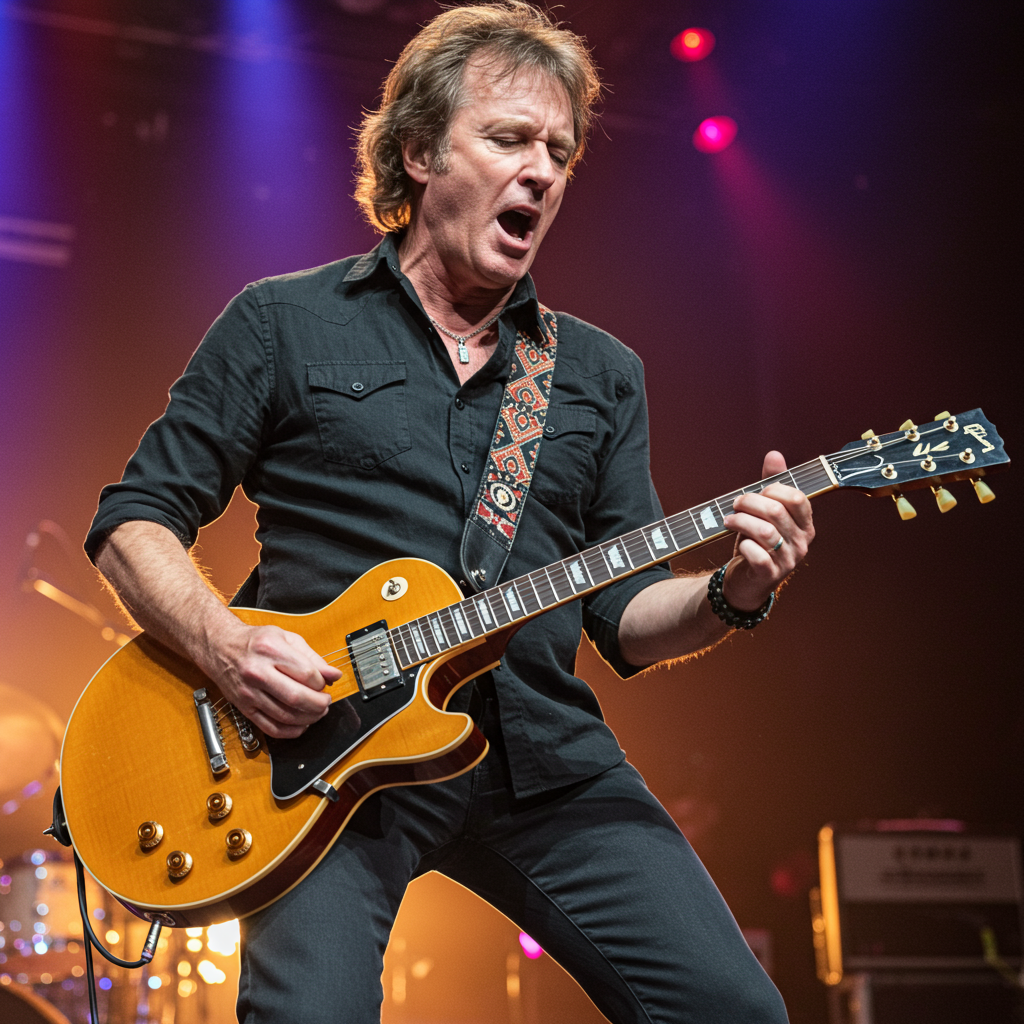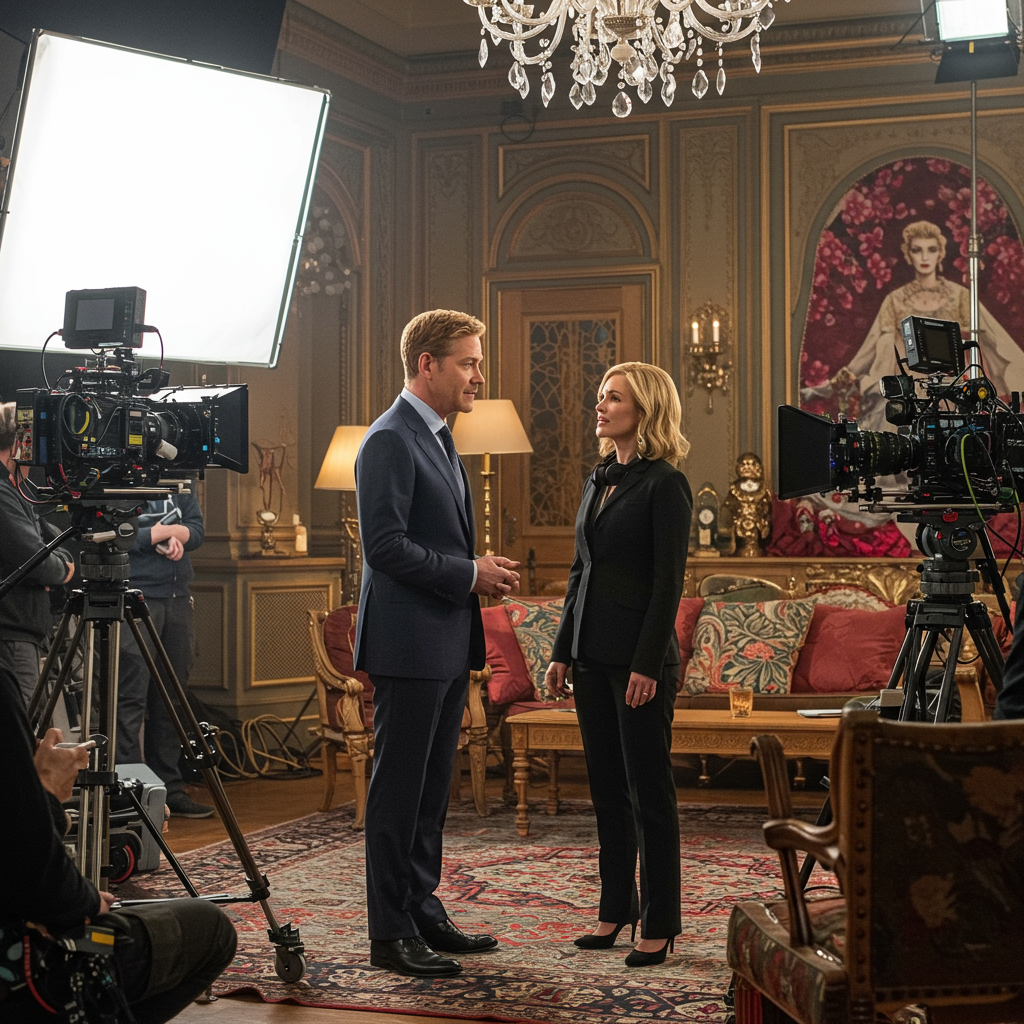Mick Ralphs, the acclaimed guitarist, songwriter, and co-founder whose distinctive sound powered two of the 1970s’ most enduring rock bands, Mott the Hoople and Bad Company, has died. He passed away on June 23, 2025, at the age of 81, according to an announcement from his representative and confirmed by Bad Company.
While a specific cause of death was not publicly disclosed, Ralphs had been in poor health for nearly a decade following a debilitating stroke he suffered in 2016. That stroke occurred just days after his final performance with Bad Company at London’s O2 Arena on October 29, 2016, and left him bedridden in his final years. One report attributed his passing to complications from this stroke.
Ralphs’ legacy is etched in the annals of classic rock, marked by his tasteful, authoritative guitar work and his significant contributions as a songwriter. His knack for crafting memorable riffs and hooks was a hallmark of both bands, helping to define their sound and produce timeless hits.
A Legacy Built Across Two Iconic Bands
Born in Herefordshire, England, on March 31, 1944, Ralphs began playing in blues rock bands as a teenager in the mid-1960s. He co-founded the group that would eventually evolve into Mott the Hoople in 1966, initially known as the Doc Thomas Group. After lineup changes and signing with Island Records, the band became Mott the Hoople in 1969, named after a 1966 novel.
Mott the Hoople earned a reputation for dynamic live performances and garnered admiration from fellow musicians like David Bowie and a young Mick Jones of The Clash. Despite their critical acclaim and strong following, chart success remained elusive in their early years. Their fortunes dramatically shifted when David Bowie, aware of the band’s potential split, intervened in 1972. Bowie helped them secure new management and a record deal, and most significantly, gifted them his composition “All the Young Dudes.” Ralphs played the memorable opening guitar line on this iconic glam rock anthem, which became a global hit and revitalized the band’s career. Their subsequent album, Mott, also achieved success.
However, even after Mott’s breakthrough, Ralphs desired a new musical direction. Following an inspired jam session in 1971 with former Free singer Paul Rodgers, Ralphs departed Mott the Hoople in 1973 to form a new “supergroup.”
This new venture, Bad Company, brought together Ralphs, Rodgers, fellow Free alumnus Simon Kirke on drums, and former King Crimson bassist Boz Burrell (who died in 2006). Starting from a position of immense strength, they were the very first band signed to Led Zeppelin’s newly established label, Swan Song Records, under the management of Peter Grant.
Bad Company’s success was immediate and meteoric. Their 1974 self-titled debut album was a massive hit, reaching five-times platinum status in the US and solidifying their presence on rock radio worldwide. The album featured iconic tracks largely penned or co-penned by Ralphs, including the hard-driving “Can’t Get Enough” and a reworked version of his composition “Ready for Love,” which he had originally recorded with Mott the Hoople. The band continued their chart dominance with albums like Straight Shooter, which included the enduring classic rock anthem “Feel Like Makin’ Love.”
Key Songs and Signature Sound
Mick Ralphs wasn’t just a guitarist; he was a foundational songwriter for both groups. His writing credits include:
Bad Company: “Can’t Get Enough” (written solely by Ralphs), “Feel Like Makin’ Love” (co-written with Rodgers), “Ready for Love” (originally for Mott, rerecorded by Bad Company), “Good Lovin’ Gone Bad,” “Movin’ On.”
Mott the Hoople: “Rock and Roll Queen,” “One of the Boys,” “Ready for Love.”
He also co-wrote “Flying Hour” with George Harrison later in his career.
His playing style was often described as “song-serving,” meaning he used his undeniable technical skill and riffing prowess not for flashy solos, but to perfectly complement the vocal and overall structure of the songs. This quality was instrumental in Bad Company selling tens of millions of albums.
Later Years and Health Struggles
Following Bad Company’s initial split in 1982, Ralphs remained active in music. He toured with Pink Floyd guitarist David Gilmour in 1984 and released a solo album, Take This*, in 1985. He also participated in various reunions for both bands over the years, including Mott the Hoople shows in 2004 and 2009, and several Bad Company reformations. In 2011, he formed and performed with the Mick Ralphs Blues Band.
His active performing career concluded with the aforementioned Bad Company concert in 2016, shortly before the stroke that led to his declining health and eventual passing.
Tributes and Lasting Impact
Tributes poured in from his former bandmates, reflecting the deep personal and musical bond they shared.
Bad Company singer Paul Rodgers expressed his heartbreak, stating, “Our Mick has passed, my heart just hit the ground.” He remembered Ralphs as “my friend, my songwriting partner, an amazing and versatile guitarist who had the greatest sense of humour.” Rodgers recalled sharing a laugh with Ralphs just days before his death and noted that Ralphs left them with “exceptional songs and memories.” He sent condolences to everyone who loved him, especially his partner, Susie Chavasse.
Drummer Simon Kirke also shared his sorrow, remembering Ralphs as “a dear friend, a wonderful songwriter, and an exceptional guitarist. We will miss him deeply.”
Mick Ralphs is survived by his partner, Susie Chavasse (described by one report as the “love of his life”), his two children, three step-children, and his bandmates Paul Rodgers and Simon Kirke. His legacy is also celebrated by millions of fans worldwide.
Adding a poignant note to his passing, Bad Company is scheduled to be inducted into the Rock & Roll Hall of Fame later this year, on November 8 in Los Angeles, posthumously honoring Ralphs’ crucial role in the band’s success. His influence on rock guitar and songwriting will continue to inspire future generations.



